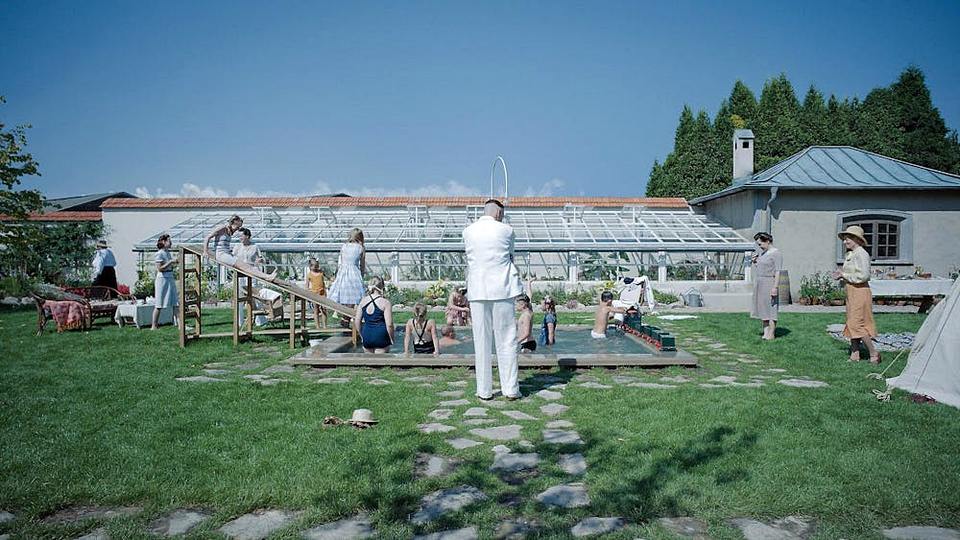
The Zone of Interest is not the first film to explore the daily life of the Hoess family living in luxury just a stone’s throw away from the atrocities of Auschwitz. “The Boy in the Striped Pajamas”, “Sophie’s Choice” and the TV series “War and Remembrance” all revealed something of the stresses as well as the fine living of being an extermination camp commandant, his wife and children.
The difference this time is that we never see inside the camp. The horror is essentially revealed through sounds – occasional gunshots, train whistles, screaming – heard whilst Rudolf Hoess (Christian Friedel) and his wife Hedwig (Sandra Huller) go about trying to have a normal family life with their five children. Rudolf is often dressed casually as he relaxes supervising his kids playing by the river or enjoying a birthday party. In his career, he reached only the rank of lieutenant colonel. Concentration camp duties never brought high promotion in Himmler’s SS empire.
Director Jonathan Glazer is determined to show the human side of the commandant: his love of horses in particular which is borne out by the historical record. He loves his wife and family, but has affairs with a female Jewish inmate before washing his genitalia in the sink as a purification exercise. Hoess finds it easy to order death – even insisting on the drowning of a starving Jewish youth accused of stealing an apple – but the closing scenes show him retching and vomiting – at the prospect of supervising the extermination of hundreds of thousands of Hungarian Jews late in the war.
Hedwig knows very well what Auschwitz is all about and even remains in the luxury house with the children on site when her husband is temporarily transferred. She simply takes no notice of the smoke from the chimneys and never mentions the evil smell when showing her mother round the extensive house gardens. The older son Klaus, about 15, has a collection of extracted teeth with gold which he secretly keeps in his bedroom. He even frightens his younger brother by locking him in a greenhouse and imitating the sound of hissing gas.
The film does not describe genocide nor does it detail the later history of the Hoess family. It finishes in mid 1944 (almost a year before Hitler’s suicide) and does not even reveal in an end-note that Rudolf was later hanged by the Poles at the Auschwitz site in 1947. Hedwig, who always denied she knew the gruesome details of mass murder, died peacefully in her sleep in the United States in 1989. All the children have now died except the youngest Annegret who was a babe in arms in 1943. The Zone of Interest’s brilliance is not what it tells on screen, but in what it hints in sound. Masterful is too weak a description.








